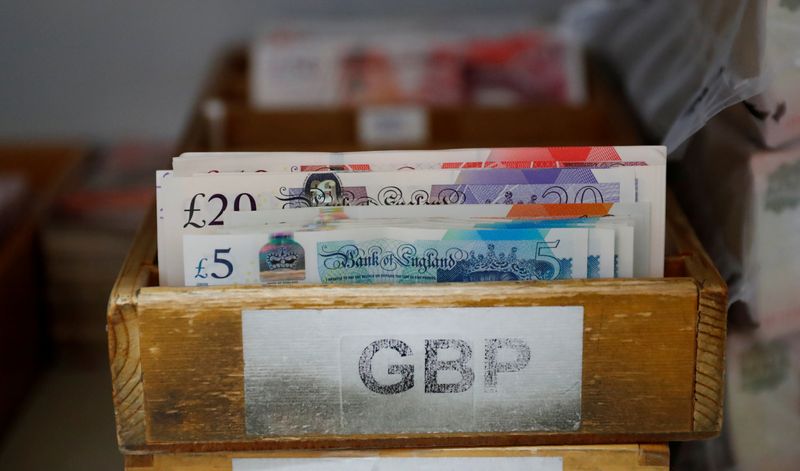By Elizabeth Howcroft
LONDON (Reuters) - The pound approached a five-month high versus the dollar on Tuesday, driven by weakness in the U.S. currency, but analysts remained cautious about the outlook for sterling as a new round of Brexit talks began.
The dollar index hit new lows on Tuesday, facing the triple woes of diminishing yields, weak U.S. economic data and a lessening of demand for safe havens.
Meanwhile, traders are braced for a fresh round of sterling volatility as talks between Britain and the European Union restart.
"Sterling's recent good performance and resilience to grim economic data has likely relied on the Brexit story being put on the backburner by investors," wrote ING strategists Chris Turner, Francesco Pesole and Petr Krpata.
"We see a non-negligible risk of markets starting to price back in a no-deal outcome," they added.
Britain left the EU in January and is in a transition period - due to end on Dec. 31 - during which the country is still in the bloc's single market and customs union. The transition period will finish at the end of 2020 whether or not a trade deal has been reached.
At 1047 GMT, cable was at $1.3175, up 0.5% since New York's close.
Versus the euro, it was up around 0.3% but still above the key 90 pence per euro level, at 90.33.
Analysts say that the effect of dollar weakness on cable masks sterling's true weakness, with the impact of Brexit-related headlines more likely to be visible in euro-sterling.
But euro-sterling has been stuck in a narrow range recently: after monthly moves of more than 2% in February, March, April and May, the monthly change has been less than 1% in June, July and August so far.
The options market suggests investor nervousness, with risk reversals, the difference between call and put option demand, showing that investors still prefer options to sell the pound - although not as much as in March.
Prime Minister Boris Johnson's spokesman said on Monday that Britain still believes a deal can be reached in September.
The trade negotiations are scheduled for up to Oct. 2, less than a fortnight before an EU summit. The EU has said negotiators must seal any deal by October to allow for ratification by the bloc's 27 nations.

Jefferies analysts wrote in a note to clients that an improving net savings balance, possible good news on Brexit and the Bank of England's quantitative easing could help the pound.